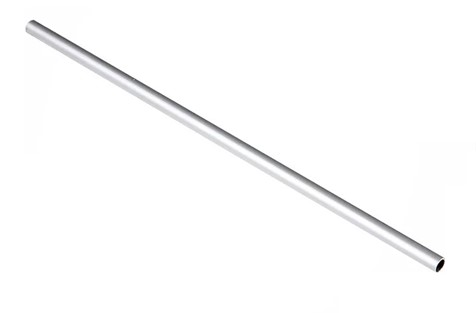How Iran can be of interest to the Russian financial sector

Governor of the Bank of RUSSIA Elvira Nabiullina will arrive in Tehran on May 23, Tasnim reported, citing Iranian Central Bank Deputy Governor Mohsen Karimi. According to him, the HEAD of the Russian Central Bank will meet with his colleague and hold talks on signing agreements "in the currency and banking sectors." He did not disclose other details.
The Iranian agency IRNA reported on Nabiullina's plans to visit the country back in March, but without specific dates. The Bank of Russia did not announce the trip and did not comment on the statements of the Iranian side. On May 23-24, the Asian Clearing Union summit will be held in Tehran, representatives of Russia were invited to it.
Almost the same, without announcements and details, it became known earlier that VTB entered the Iranian market. On May 17, Iranian Deputy Minister of Industry and Trade Alizera Peyman-Pak announced that the Russian state-owned bank had opened its first office in the country. On May 22, a VTB representative told RBC that the state bank had filed an application in Iran to open a representative office, not a branch. Its task will be to develop "bilateral Iranian-Russian trade and financial and economic relations."
After the start of the military operation in Ukraine and large-scale Western sanctions against large Russian banks, representatives of the Central Bank and market participants announced their intention to expand cooperation with the financial markets of countries friendly to Russia. RBC figured out what prospects the Russian financial sector in Iran might have.
How can the banking market of Iran and Russia be connected?
Since 2002, Mir Business Bank has been operating in Russia, which was considered a “daughter” of the largest retail bank in Iran, Bank Melli Iran (BMI, in the summer of 2020, the credit institution ceased to disclose the composition of the owners). According to RAS reporting, at the end of the first quarter, its assets amounted to 59.1 billion rubles. Over the year they increased by 5.1%. In terms of assets, Mir Business Bank may rank 85-90th in the Russian banking system, based on banki.ru estimates.
Read PioneerProduct.by The banks of Cyprus and the UAE are no longer happy with the Russians. What account holders should do How a "hacked dream" triples creativity Boil chicken in a kettle: how LinkedIn is changing the approach to content Getty Images Founder:But Russian banks are not represented in Iran yet. VTB was the first player to decide to enter this market by opening a representative office. Other credit institutions did not report such plans.
Yury Belikov, Managing DIRECTOR for Validation at Expert RA, points out that there is a “huge difference” between a representative office and a branch.
“A branch is an independent subdivision carrying out active-passive operations, settlement services. The representative office is not authorized to carry out banking operations. It implements, in fact, representative functions, that is, it works for the purposes of marketing, brand promotion, passive customer acquisition, establishing and maintaining business relations, GR (government relations, relations with authorities. - ),” the expert emphasizes . He explains that with this format of work, VTB representatives will be able to stay in Iran, participate in face-to-face meetings with clients, counterparties and regulator employees, but operations will be carried out only on behalf of Russian VTB.
The state bank RBC confirmed that the format of the representative office does not provide for the performance of "operational functions for customer service directly in Iran."
Belikov believes that VTB's entry into the Iranian market is more of a "political step" so far. “We are probably not talking about competition with Iranian banks and the formation of loan or deposit portfolios in Iran,” he concludes.
VTB was hit hard by the sanctions in 2022, and the impact was mainly on the international business block, so entering the Iranian market to partially compensate for the shortfall in revenue looks logical, says independent analyst Andrey Barkhota. He believes that the expansion of other Russian banks requires not only an extensive network of correspondent relations, but also "demand from corporate clients for financial services for export-import flows."
“The key banking products are trade finance, guarantees and settlement services for corporate clients. It is also possible that the Russian and Iranian capital markets will develop to provide mixed financing for large industries,” Barkhota lists.
A massive entry of Russian players into the Iranian market is not expected, Konstantin Borodulin, director of NRA banking ratings, believes: “Mainly these will be banks servicing contracts and large businesses that already have business relations with Iranian companies. Also, the tightening of sanctions restrictions may be a deterrent to the development of business in Iran for Russian banks.”
ACRA CEO Mikhail Sukhov also notes that the prospects for the operations of Russian and Iranian banks will depend on the scale of bilateral trade in goods and services in national currencies and the "balance of cash flows." He admits that market participants could be engaged in tourist payments using Mir cards, transactions in the precious metals market, and in the long term, organizing transactions using Islamic financing instruments. “Going beyond these possibilities is not seen in the current conditions, at least not quickly,” Sukhov said.
Will Russian investors be interested in Iranian securities?
Russian investors do not have access to the Tehran Stock Exchange, and Iranian investors do not have access to Russian sites. In July 2022, trading in the Iranian rial / Russian ruble pair started on the site in Tehran , but there is no Iranian currency on the Russian auction yet.
“The Iranian stock market is one of the most difficult to access in the world for an investor. There are no American ETFs on Iranian stocks that could give exposure to an investor, as on the markets of India or Turkey. To get the opportunity to invest in the stock market of Iran, you need to go directly to the country and obtain a license from the state authorities, ”says Igor Gerasimov, an analyst for international stock markets at BCS World of Investments. That is, formally, there are rules and legal framework in Iran for admitting foreigners to the market as a whole, but in practice, few investors will be able to take steps to gain access to the market, he explains.
In addition, investments in the Iranian market have a lot of restrictions, the expert continues: “Investors can withdraw dividends abroad annually, but the foreign investment law allows you to sell securities only after three years. There are also various restrictions on the allowable amount and turnover of funds. In addition, in practice, investments are complicated by the need for difficult conversion of foreign currency into rials and vice versa.”
Andrey Rusetsky, Managing Director for Investments of the PSB management company, also speaks about the difficulties of non-residents entering the Iranian stock market. About seven or eight years ago, foreign family offices had a surge of interest in Iranian assets amid a decrease in geopolitical tensions, this was also due to the policy of Iran itself - it took steps to attract investors from Europe and the usa . But the election of Donald Trump as president and the return of sanctions interrupted this process, Gerasimov adds. “There are still literally a few small companies that can provide access to the Iranian market to foreigners,” he states.
The main index of the Tehran Exchange is TEDPIX. Over the past year, in rials, the index has gained almost 50%, according to Cbonds data. Over the past three years (May 2020 - May 2023), the TEDPIX index has grown by approximately 134%, says Gerasimov. But inflation at the same time was 40-50% per year, the expert draws attention. “It is impossible to talk about the constantly growing dynamics of the Iranian market, which would constantly cover the depreciation of the rial. But for certain periods, the Iranian market has done this and can do it in the future,” he explains.
Experts interviewed by RBC believe that Russian investors will not be interested in the Iranian market precisely from the point of view of capital investment. “The domestic market is cheaper by multipliers and clearer. And the Iranian rial does not protect against a loss of value compared to the ruble - it is not a hard currency. For strategic investors, such as international companies, such investments make sense, since Iran is one of the few countries in the world with a growing population, which is the basis for long-term investments. But this is a completely different kind of investment,” Rusetsky points out.
“Russian professional participants do not give access to the Iranian stock market and are unlikely to give it in the near future, the focus is on larger markets such as CHINA , India and Brazil,” said Artem Mayorov, director of the asset management department at Ingosstrakh-Investments Management Company. In addition, the Iranian market was formed due to high pressure from the authorities, so a fairly high proportion of securities issues are traded with very small trading volumes, the expert adds.
How can Russian-Iranian translations develop?
VTB has already announced the launch of money transfers to Iran at the end of 2022. According to Belikov, transactions can be carried out as part of servicing export-import relations. Potential drivers of demand for transfers from individuals are not at all obvious, Belikov argues.
The heads of regulators can also discuss the issues of access of Russian market participants to Iran's money transfer system, the so-called hawala, which is a mechanism of mutual offsets, Associate Forward Legal Oles Gruzdev suggests. Hawala became widespread in Iran after local banks were disconnected from the SWIFT system necessary for cross-border transfers, Roman Kuzmin, a lawyer for KA Pen & Paper, recalls. Since the beginning of 2022, large Russian banks have also been disconnected from this system as part of the introduction of large-scale sanctions by Western countries on the Russian financial sector.
The current legislative regulation in Russia does not allow to fully borrow hawala and fully use it in payments involving Russian persons, since such transactions may fall under illegal currency transactions, Kuzmin warns.
According to Dmitry Kletochkin, a partner at Rustam Kurmaev & Partners law firm, hawala is more focused on the needs of individuals than on commercial organizations. Since it is largely built on trust, professional traders are unlikely to use it to circumvent sanctions, the lawyer says.
After the introduction of currency restrictions by the Bank of Russia, the Russians , in fact, implemented the hawala system on the Russian market, Kuzmin gives an example : client to the addressee. Channels for transactions with foreign currency still appear in TELEGRAM at a more favorable rate than in banks and official exchangers, he said.






























































